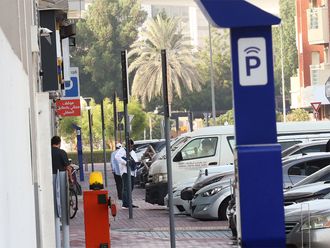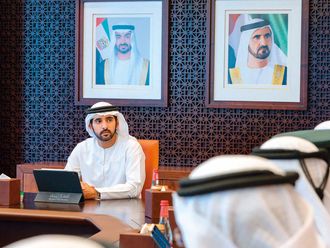The culture of driving in the country is the main cause of concern, rather than the training of drivers or the implementation of road safety rules, a senior Roads and Transport Authority (RTA) official told Gulf News.
Taking into consideration the current state of the driving culture, RTA has decided to make driving culture the key focus area of their driver’s training next year.
“We have conducted surveys on the cultural aspects of driving and will see how to use the findings to impart a better behavioural understanding to trainees,” said Arif Al Malik, Director of Drivers Training and Qualification at RTA’s Licensing Agency.
Apart from the regular lectures on traffic rules and safety, RTA is looking to focus on driving under different circumstances and the good and bad habits of driving.
Important aspects like dealing with peer pressure are also being considered by RTA.
“Anger management, how to deal with intimidation, how not to get affected by peer pressure, [these topics] are also being considered for inclusion in the curriculum,” said Al Malik.
Another important step that RTA is planning is staggered lectures, wherein what a candidate learns in theory will be immediately shown practically, creating a logical comprehension of the concept.
RTA is also planning to make interactive driving simulators mandatory after a few classes and based on the performance on the simulators, the trainees will receive further classes.
However, the authority is convinced that the number of classes that trainees undergo is sufficient.
“We are getting a reverse feedback on the number of classes. We have benchmarked all our training modules and curriculum against the international best practices and we are convinced that a minimum of 40 classes for new drivers is sufficient,” insisted Al Malik.
Rather than focus on the number of classes, he said, RTA is focusing on quality of training.
“Some of the behavioural problems are turning out to be the main causes of accidents, so we want to focus on these areas. Short temper, intimidation, aggressive driving, blocking other’s way, deliberate sudden braking, cutting in, tailgating are some of the major issues we are trying to address in our training,” he said.
Al Malik admitted that new drivers contribute to significant number of traffic accidents in the first two years of driving in the UAE. He added that it is a worldwide phenomenon.
“We are planning to introduce new measures to place certain restrictions on new drivers, with the aim of reducing traffic accidents.” .
Key focus of training
Developing a positive mindset among drivers.
Driving home importance of complying with traffic rules.
Handling adverse driving conditions
Strong emphasis on the consequence of traffic accident.
Highlight responsibility on the road.
Key to forming driving habits
From early stages of driving, learners must be taught the proper way to drive.
Instructors, parents and guardians should be able to identify negative behaviours in drivers and highlight them, while positive behaviours should be encouraged and praised. This will reinforce the right behaviour.
Driving institutes play an important role in imparting positive attitudes.
Parents and guardians must be role models and demonstrate positive driving habits on roads.
Youngsters learn passively when they observe the behaviour of experienced drivers on the roads.
When learners exhibit negative behaviours, they must be corrected, failing which they will repeat them.
Causes for bad behaviour
When bad behaviour is not corrected, or when peers view it as ‘cool’.
Realising what is taught during the training and testing process is not being practiced on the roads by others. This leads them to think that after obtaining the driving license, there is no need to apply the lessons in practice.
Following someone who is a ‘risk-taking’ and ‘skilled’ driver. These young drivers tend to put aside whatever is learnt and follow wrong examples.











